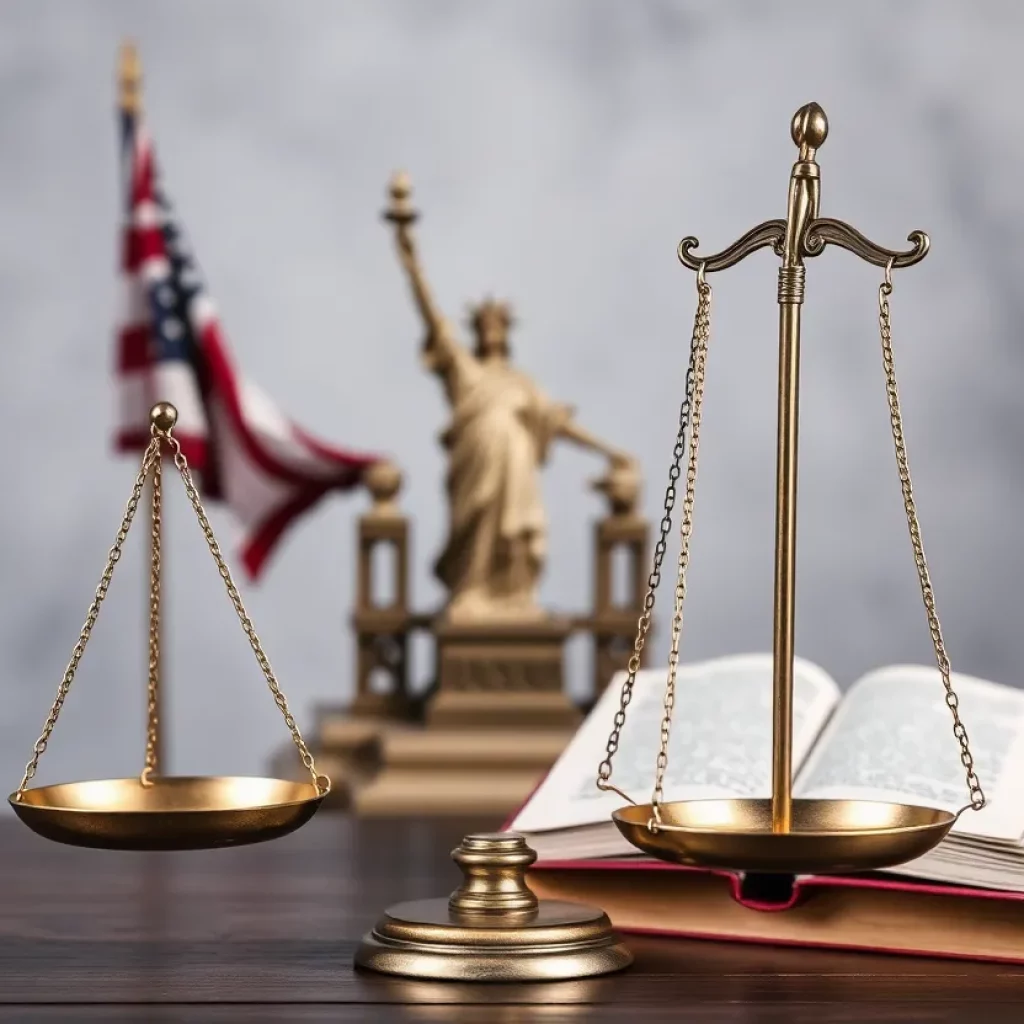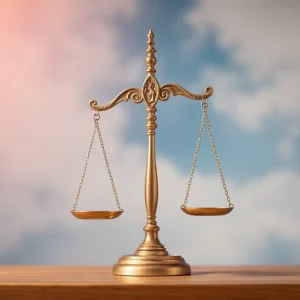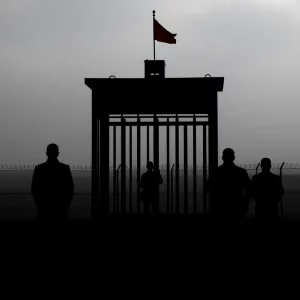News Summary
The Trump administration’s recent actions have prompted concern over the integrity of the Department of Justice. A former DOJ attorney’s dismissal following her objection to political favoritism in legal proceedings exposes risks to judicial independence. As the legal landscape evolves, the implications of these maneuvers could reshape the rule of law in the United States, raising serious questions about civil rights and legal accountability.
The Troubling Legal Landscape Under Trump’s Administration
The Trump administration in 2025 has continued to stir controversy with its legal maneuvers and dismissal of the traditional norms governing the Department of Justice (DOJ). The recent firing of Liz Oyer, a former DOJ pardon attorney, has ignited fierce debates within political circles regarding the integrity of the justice system.
Shifting Loyalties in the DOJ
Oyer’s dismissal came as she voiced her strong opposition to the restoration of gun ownership rights for Mel Gibson, a prominent actor with a history of misdemeanor domestic violence charges from 2011. Gibson’s support for Trump has seemingly placed him at an advantageous position, prompting concerns from Oyer and others within the DOJ about the erosion of the institution’s independence. The administration’s efforts to eliminate the separation between the DOJ and the White House have led to the removal or demotion of multiple high-ranking officials who prioritize the interest of the American public over political affiliations.
Impending Congressional Testimonies
As Oyer gears up to provide testimony before Congressional Democrats, she has expressed her grave concerns regarding the current DOJ leadership, indicating that it aligns more with presidential interests than serving the rule of law vital for democracy. Her fears extend to the potential long-term damage the Trump administration could inflict on the judiciary system and the defense bar, suggesting that future generations might suffer from the detrimental effects of politicized legal processes.
The Threat to Independent Legal Representation
Oyer’s testimony is poised to uncover a troubling narrative that illustrates how the Trump administration’s actions are pressuring private law firms to modify their practices. Many firms appear hesitant to take on certain cases, creating a chilling effect on defense attorneys who should be advocating robustly for their clients’ rights. Despite some firms seeking agreements with the Trump administration to shield themselves from potential fallout, Oyer warns that such deals lack legal binding and remain vulnerable to sudden shifts in political priorities.
Immigration Policy Controversies
In addition to the upheaval within the DOJ, the Trump administration has faced intense scrutiny regarding its immigration policies. A recent legal ruling saw a federal judge demand the administration secure the return of Kilmar Abrego García, who was wrongfully deported to El Salvador despite winning a legal order preventing his removal due to grave threats to his life. The DOJ’s appeal against this order, arguing it lacks authority over foreign sovereign jurisdictions, raises questions about the administration’s commitment to upholding judicial decisions.
Civil Rights Violations Amid Immigration Enforcement
Under Trump’s directive, immigration enforcement has escalated significantly, overshadowing other law enforcement obligations. Advocacy groups have reacted vigorously, filing numerous lawsuits to challenge these practices, claiming violations of civil rights and improper conduct in evaluating asylum requests. With resources diverted away from other law enforcement activities, a potential lapse in justice looms large on the horizon.
Legal Battlegrounds Over Federal Grants
The ongoing tussles between the Trump administration and state jurisdictions have extended into educational funding. The Supreme Court’s temporary approval for the administration to cancel federal education grants linked to diversity, equity, and inclusion initiatives has sparked outrage among states like California and New York, which are now pursuing legal action over the perceived violations of federal rules concerning agency operations.
Conclusion: The Erosion of Justice
As the political landscape continues to evolve under Trump’s presidency, the actions taken by the DOJ are indicative of wider implications for the rule of law in the United States. With a clear push from the administration to reshape legal norms and accountability measures, many are left questioning the future of an independent and robust justice system. The intermingling of legal strategies with political aspirations presents an unsettling reality for those advocating for justice and equality in the American legal landscape.
Deeper Dive: News & Info About This Topic
HERE Resources
Immigration Lawyer Under Fire for Challenging Deportation Case
Controversy Erupts Over Lawyer Ed Martin’s Nomination as U.S. Attorney
Trump’s Lawyer Stanley Woodward Nominated as Associate Attorney General
Charleston Protest Against Rep. Nancy Mace Faces Court Setback
New England Emerges as Key Legal Battleground Against Trump Policies
Trump Nominations: Lawyer Stanley Woodward Jr. Takes Center Stage
Harmeet Dhillon, Lawyer, Confirmed to Lead DOJ Civil Rights Division
USDA Releases Federal Grant Funds Amid Changes for Farmers
U.S. Government Acknowledges Mistaken Deportation Case
Elon Musk’s Impact on Wisconsin Supreme Court Election
Additional Resources
- CBS News: Trump administration appeals judge’s order on deported immigrant
- Wikipedia: Deportation in the United States
- Washington Post: Supreme Court allows Trump to cancel federal education grants
- Google Search: Trump education grants Supreme Court
- New York Times: Justice Department Lawyer Suspended After Questioning Trump’s Immigration Policies
- Google Scholar: Trump administration immigration policy 2025
- Encyclopedia Britannica: Related Issues in US Education Funding
- Google News: Trump immigration policy
























